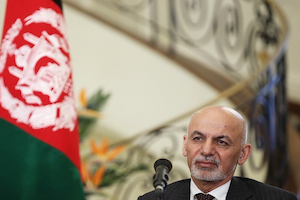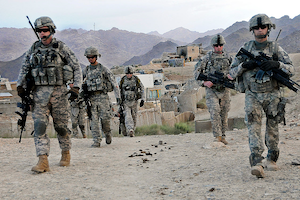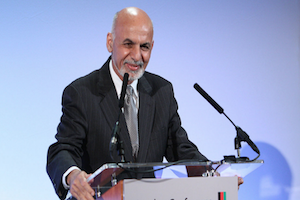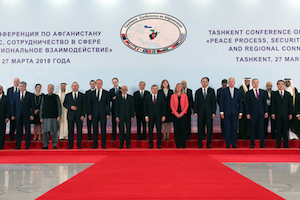Afghan President and Rival Agree on Power-Sharing Formula: Will it Lead to Lasting Peace in Afghanistan?
By Umair Jamal
July 15, 2020, the CACI Analyst
After a months-long bitter election dispute, Afghanistan’s President Ashraf Ghani and his chief rival, Abdullah Abdullah, agreed in May to a power-sharing formula to form an inclusive government. Essentially, the agreement ended a political crisis that led to Ghani and Abdullah declaring parallel governments and threatened the ongoing international effort, spearheaded by the U.S., to negotiate a peace accord with the Afghan Taliban. While an agreement between Ghani and Abdullah is a welcome move, Afghanistan has been at this stage before. The current setup poses challenges to negotiations with the Taliban, dealing with external pressure to deliver on the U.S.-Taliban peace deal and managing underlying ethnic divisions that threaten the current regime.

What Will the U.S.-Taliban Peace Agreement Bring for Afghanistan?
By Sudha Ramachandran
March 7, 2020, the CACI Analyst
The Agreement for Bringing Peace to Afghanistan, signed by the U.S. and the Taliban on February 29, is a major milestone in the almost two-decade long war between the two adversaries. While it could change the trajectory of the conflict, it is unlikely to bring peace to Afghanistan. Narrow self-interest of the two signatories drove the deal, rather than the objective of peace in Afghanistan. This and the flawed content of the agreement will in all likelihood lead to escalating violence in the coming months.

Taliban Resumption of Fighting Should Not Bury Afghanistan's Peace Process
By Sudha Ramachandran
June 26, 2018, the CACI Analyst
A day after Taliban fighters stunned the world with photographs of themselves embracing and celebrating Eid with personnel of the Afghan security forces, the Taliban leadership announced its decision not to extend the ceasefire. This dashed the hopes of millions of Afghans who were looking forward to a respite from the war. While the Taliban’s refusal to extend the ceasefire is disappointing, it is not the end of the road for the peace process. In recent months, Afghanistan has witnessed powerful demonstrations calling on the government and the Taliban to end the fighting. President Ashraf Ghani must draw on these peace constituencies to keep the peace process alive.

The Tashkent Conference on Afghanistan: Too Much Diplomacy, Too Little Solution
By Farkhod Tolipov
May 29, 2018, the CACI Analyst
On March 26-27, 2018, the unprecedented international conference on Afghanistan, “Peace process, security cooperation and regional interactions,” took place in Uzbekistan’s capital Tashkent. Diplomatic representatives of 21 states, the UN and the EU participated in the conference and signed its final Tashkent Declaration. The event signaled a transformation of Tashkent’s previous positions on Afghanistan, from past initiatives in the form of narrow formula-like approaches to a system-oriented strategy. However, the Tashkent Declaration and speeches given at the conference reveal that the approach contains too much diplomacy and too little solution, especially given the growing terrorism threat in the country.



